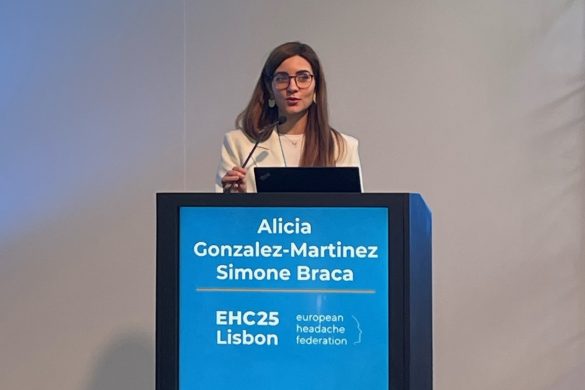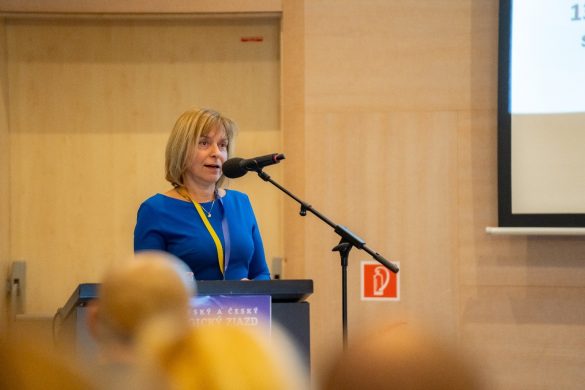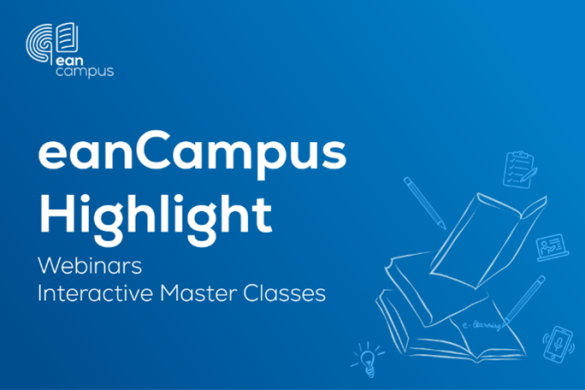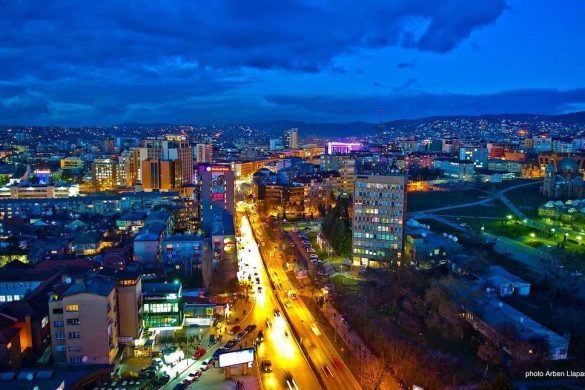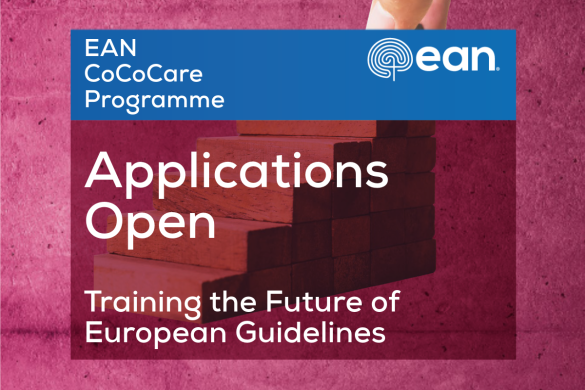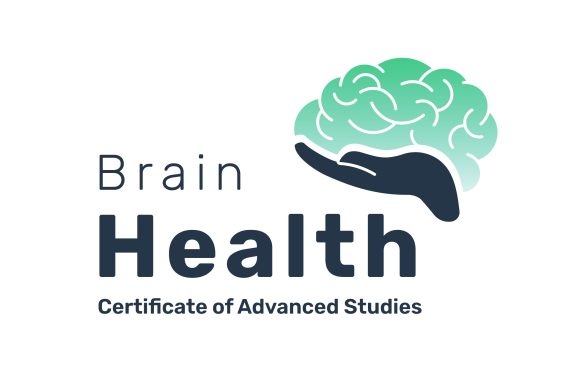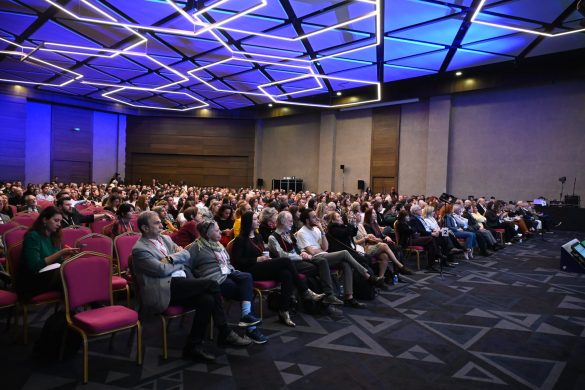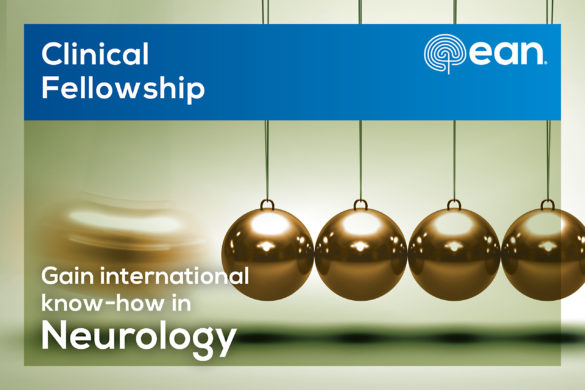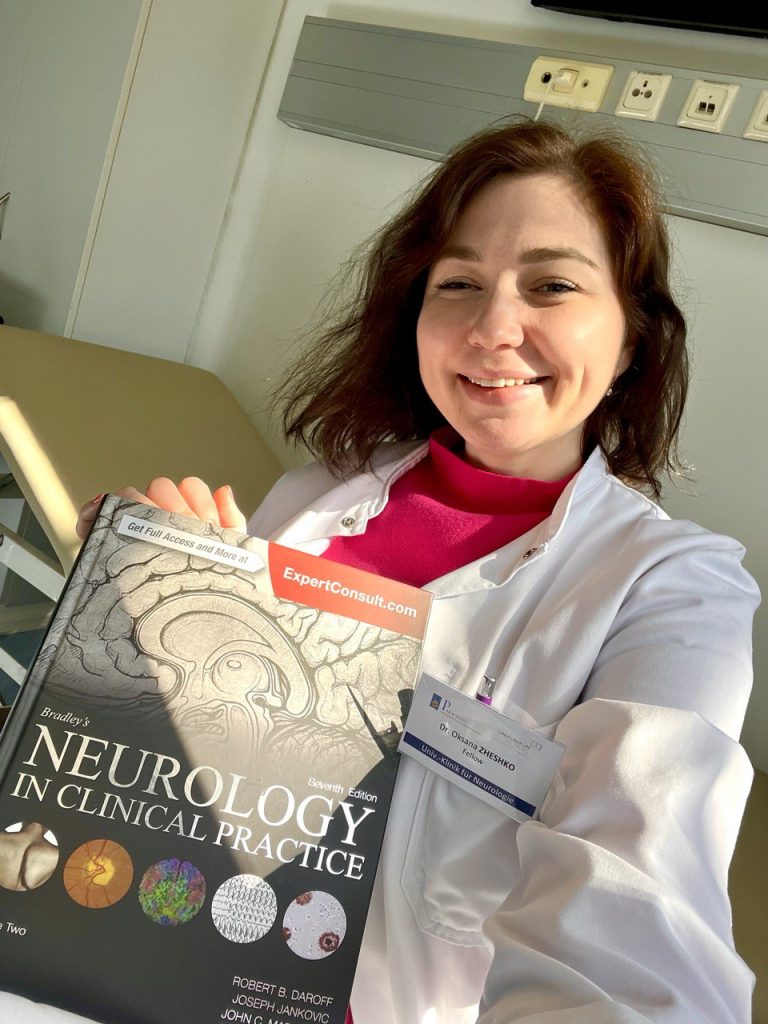
Oksana Zheshko, Lutsk, Ukraine
Term of Fellowship: 6 March -14 April 2023
Hosting department: Christian Doppler Medical Center, Paracelsus Medical University, Department of neurology, Salzburg, Austria
Supervisor: Prof. Peter Wipfler
…
From 6 March to 14 April 2023, I was lucky enough to complete my EAN Clinical Fellowship at the Department of Neurology, Christian Doppler Medical Center, Paracelsus Medical University – a leading neurological clinic for neurocare and rehabilitation in the beautiful city of Salzburg, among the Austrian Alps.
On the first day, my mentor Prof. Peter Wipfler showed me the clinic and gave me useful tips on how to use all the opportunities that this home of neurology has to offer. He introduced me to his team, who were friendly to me from beginning to the end of my fellowship.
Prof. Wipfler and Prof. Ferdinand Otto were the doctors who took me on daily morning ward rounds. Considering the fact that my area of interest is multiple sclerosis and related disorders, it was valuable to work with these doctors, to discuss new research, interesting sources and articles, share clinical experience and our own observations of the effectiveness of drugs and their impact on the course of disease. They didn’t get tired of translating important points to me in English (I had the courage to choose a German-speaking country, understanding only English and Slavic languages). They shared with me unique clinical cases and radiological findings, which are rare even on a national scale.
I am sincerely grateful for the opportunity to attend the Weill Cornell Seminar in Neurology during my fellowship, organised by the American-Austrian Medical Foundation. The lecturers were given by leading European and American neurologists, rehabilitation specialist and neurosurgeons. At this event, I established invaluable working contacts and received advice on managing rare clinical cases from my own practice.
I would like to say a little about the differences between a hospital in Ukraine and Austria. I really hope and will do what I can to implement these useful observations to the hospital where I work in Ukraine.
The first one is the availability of outpatient clinics, where people with chronic diseases can make an appointment with a doctor whom they trust and have chosen for themselves. Even without worsening of their condition, just for a regular check-up and discuss how they have lived these three to six months on therapy. This makes it possible to adjust something quickly and painlessly for the patient.
The second one is the presence of a statistics department in the clinic, which in fact opens up many opportunities: from the study of the factors that affect the increase in morbidity of certain diseases, to the number of purchases of necessary drugs for people who have already been diagnosed.
Thirdly, to be in Prof. Trinka’s department and not to mention about the centre for patients with epilepsy is a real crime. Doctors who treat these patients understand the incredible importance of 24-hour video EEG and ECG monitoring, especially in drug-resistant cases. This centre deals with extremely difficult clinical cases: patients often spend up to 14 days of continuous observation with implanted intracranial electrodes for the maximum possible correction of their condition.
The fourth difference is everyday morning meetings with radiologists to analyse the CT and MRI scans of patients admitted in the last 24 hours. It really develops both specialties and helps to create a strong team.
The fifth difference that makes me green with envy is the power of the local laboratory, which can do literally all the necessary tests. I can explain my jealousy: there is no insurance medicine in Ukraine, so, for example, to take all paraneoplastic markers for patients with inflammatory demyelinating polyneuropathy or to perform all laboratory tests for a patient suspected of multiple sclerosis – the person’s salary for more than one month will go together with the samples to a European laboratory and the waiting time for the results accordingly increases due to the addition delivery time of the patient’s samples. For this reason, a neurologist in Ukraine should be well aware of the cost of all laboratory tests and necessary drugs.
My fellowship in this leading Austrian clinic reminded me once again that the collection of medical history is no less important than the examination, as well as the choice of therapy, considering the patient’s opinion.
I would like to express my gratitude towards to the team of the Neurology Department at the Christian Doppler Medical Center and the EAN team, for accepting me, for a friendly attitude and sympathy for the situation in Ukraine. The EAN fellowship gave me the opportunity to meet like-minded colleagues who inspired, supported and motivated me to become a better specialist and just a better version of myself.
I will be happy to meet you in a peaceful, independent and prosperous Ukraine soon!
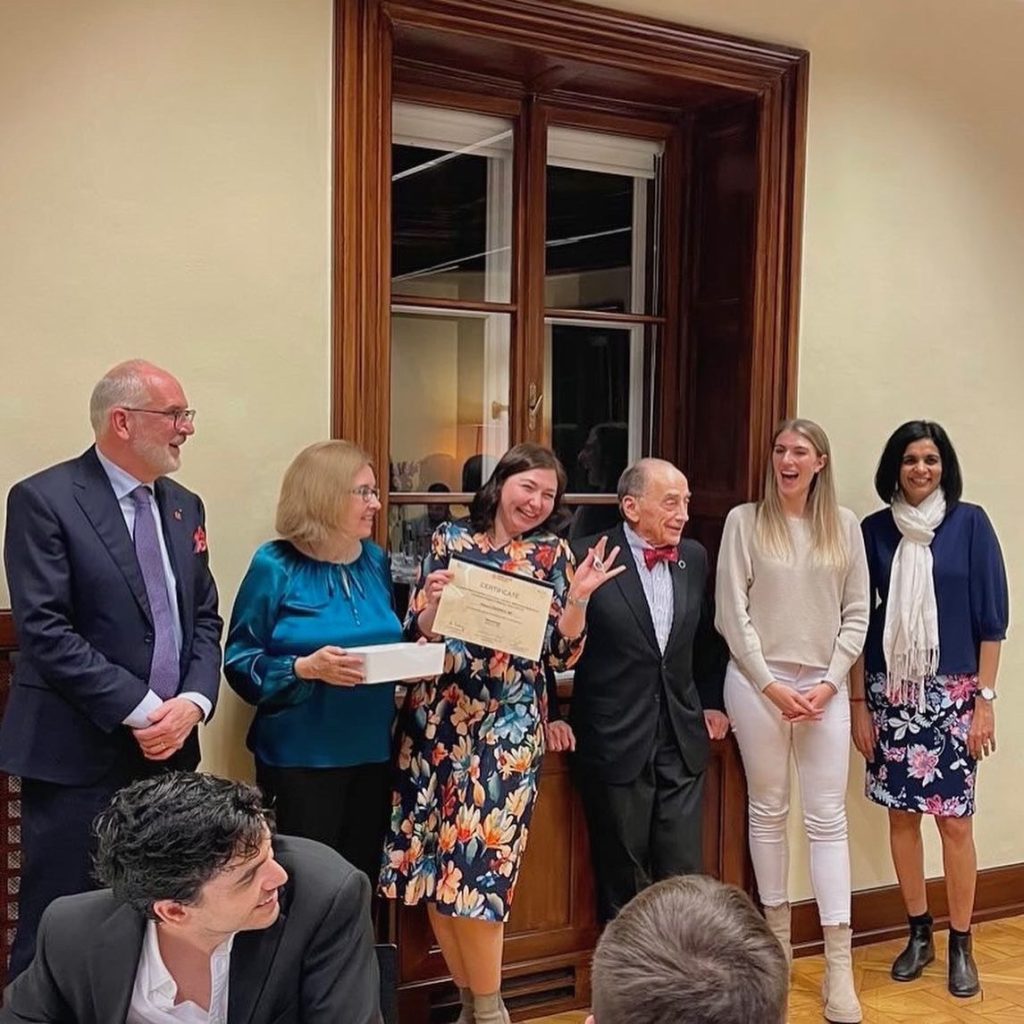
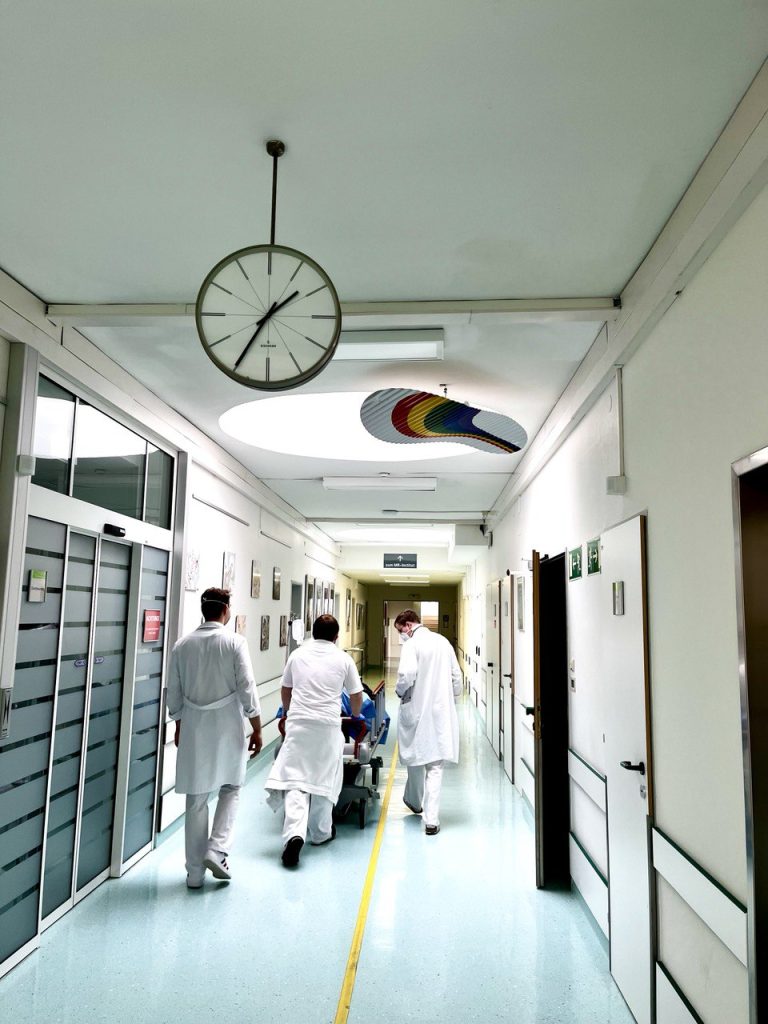
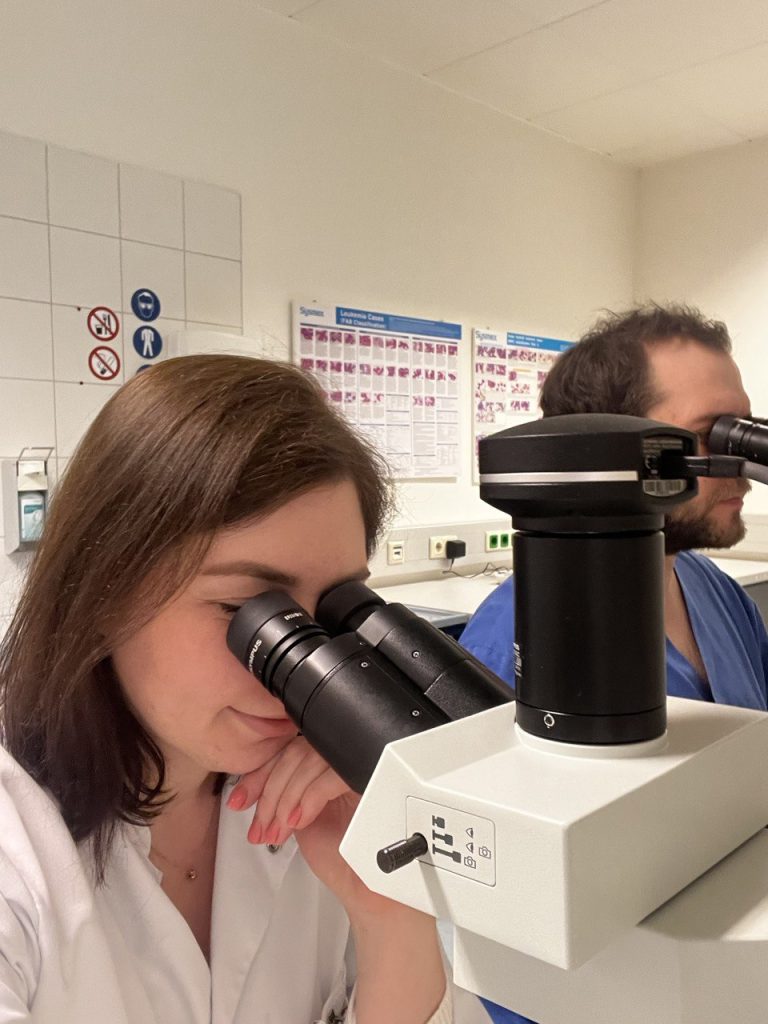
Pablo Iruzubieta Agudo, San Sebastian, Spain
Term of Fellowship: 30 January – 30 April 2023
Hosting department: Department of Neuromuscular Disorders, UCL, UK
Supervisor: Prof. Henry Houlden
During 12 weeks (February, March and April) I had the opportunity to undertake a clinical fellowship in Prof. Henry Houlden’s group and do both clinics and research on neurogenetics at the National Hospital for Neurology and Neurosurgery and the Institute of Neurology in Queen Square in London.
On the one hand, I attended the neurogenetics clinic every Friday where I saw patients with all kinds of neurological monogenic disorders (from dementia patients with MAPT or TBK1 mutations, to several types of spinocerebellar ataxia [SCA] or leukodystrophies). There, I learnt about the most common neurogenetic diseases and the main hallmarks of a neurogenetic clinic, including genetic counseling, asymptomatic testing indications and how to report the results. Furthermore, I was also able to attend other clinics related to neurogenetic disorders such as the movement disorders clinic, the mitochondrial disorders clinic and the muscle dystrophies clinic. This great diversity of consultations, directed by specific experts on each area, allowed me to learn the particularities of each sub-specialty completing the general basis obtained in the neurogenetics clinic. Additionally, I have been able to participate in different meetings including lab meetings, journal clubs, update meetings or the weekly neurogenetics clinical meeting where patients were discussed and doctors decided about the best management for them.
On the other hand, another important part of this stage was related to research on neurogenetics. Hence, I was able to participate in different ongoing research projects including a clinic, genetic and neuroimaging description of patients with biallelic mutations in NOTCH3 where we have found interesting results and we plan to publish soon in a scientific journal. Moreover, I brought samples from Spain as part of an approved project with unsolved ataxia in order to test them for new genes identified in the lab. Hence, I worked with Dr David Pellerin who has recently described GAA-FGF14 ataxia (SCA27B) and I screened my samples for the new expansion, getting the diagnosis in 28% of patients (18 in total). These results are very impressive as, SCA27B was the most frequent cause of late onset ataxia in our local cohort. These results will be submitted to international conferences and we are also preparing a paper we expect to submit soon. Besides, I have learnt the basis of exome analyses, how to manage a new gene finding, including the use of fibroblasts for validating new genes or variants with functional studies. Furthermore, during my stage I learnt the technique for screening FGF14, I have helped Dr Pellerin in other projects, and I plan to implement it back in my hospital. Besides, new collaborations have been established between Houlden’s lab and our lab regarding advanced genetic testing in complex patients using state-of-the-art techniques including optical mapping and long read sequencing (both Nanopore technologies and PacBio).
To sum up, I think these 12 weeks have been very useful for my career as I have learnt many things related to neurogenetics, a field I find amazing and in which I would like to sub-specialize in the future. With the learning obtained in this stage I hope to start a neurogenetic clinic in my own hospital once I finish my training. Thus, I have learnt both the clinical management of patients with neurogenetic disorders and also some of the main current research on processes that will try to find out the genetic cause of a great variety of disorders from ataxia to muscle dystrophies and neurodevelopmental disorders. Furthermore, we have established the basis for a fruitful collaboration between my home hospital and Houlden’s group sharing new techniques, samples and participating in international networks that will help our understanding of neurogenetics with the aim of helping patients in the future.
In conclusion, it has been a great experience and I have been able to meet keen people with similar interests and learn from them.
Barbara Wagner, Birsfelden, Switzerland
Term of Fellowship: 2 January – 31 March 2023
Hosting department: Autoimmune Neurology within Neuroscience Department, John Radcliffe Hospital, University of Oxford
Supervisor: Prof. Sarosh Irani
Having received the grant for an EAN Clinical Fellowship, I had the rare opportunity to gain extensive clinical and research experience as well as knowledge in the field of autoimmune encephalitis, for which Oxford is a world-renowned institution, receiving clinical referrals from the entire United Kingdom. Prof. Sarosh Irani, Head of the Autoimmune Neurology group in Oxford, having discovered the LGI1 antibodies in 2010, is one of the world-leading experts in the field with a huge amount of clinical experience and also a grand autoimmune laboratory in the University Hospital of Oxford with one of the largest LGI1 encephalitis cohorts worldwide.
I attended regular ward rounds with Prof. Irani and his team to neurology wards and intensive care units, seeing patients with acute encephalitis, like NMDA-antibody encephalitis, LGI1 antibody encephalitis, GAD-antibody Ataxia, CASPR2-antibody Morvan syndrome. I gained knowledge about both the diagnostic work-up pattern as well as the therapeutic management.
I also participated in Prof. Sarosh Irani’s frequent outpatient clinics, where I learned more about the intricate follow-up care for different antibody-mediated encephalitis types such LGI1, NMDAR, IgLON5, CRMP5, CASPR2, GAD, seronegative and others. To prepare for these highly specialised clinic days, I attended neuroradiology and pre-clinic meetings where I presented some of the cases, which were then carefully reviewed, including discussions regarding aetiology and treatment possibilities. One case, for instance was a 70-year-old woman who presented with a suspected LGI1 encephalitis with temporal T2 hyperintensities in MRI, reflecting an autoimmune origin with a clinical presentation that was slightly atypical and was found to have a low-grade glioma in the end. A neuropsychologist, a neuropsychiatrist, and a neuropaediatrician were also present during clinic, performing separate evaluations on the patients and providing critical input into their care.
Furthermore, I participated in Prof. Sarosh Irani’s weekly lab meetings, where the laboratory aspects were discussed in depth and current research projects and publications were presented by one group member at a time, doing basic lab research on B-cells, T-cells, and more, leading to a deeper understanding of the biology of autoimmune encephalitis. These were created to be very interactive in order to generate novel concepts and ideas from one another.
With this EAN grant, I was also able to make contacts in the Oxford Autoimmune Neurology group and begin a clinical research project assessing long-term outcome in LGI1 encephalitis patients, interviewing and examining many of the Oxford cohort’s LGI1 encephalitis patients.
Overall, this grant provided me with an excellent opportunity to gain insight into a very interesting area of neurology, as well as insight into the nature of high-level research at one of the world’s finest universities.
Returning to the neurology department at the Kantonsspital Aarau in Switzerland, I am confident that this special expertise will enable me and my team to identify challenging autoimmune encephalitis cases more quickly and, as a result, underdiagnosed patients. On the other side, a greater knowledge of the biology of a positive test result will aid in identifying patients who have been over-diagnosed and have a clinical atypical condition.
Additionally, the clinical knowledge I have acquired in this area will undoubtedly be useful in handling challenging situations in ward and intensive care unit.
Furthermore, I want to develop an autoimmune clinic in my home department with ongoing guidance and collaboration with Oxford colleagues. I have already started the process of joining the GENERATE German autoimmune encephalitis network.
Also, I am very keen to start new initiatives in Aarau that may involve collaboration with University Basel and/or the GENERATE network in addition to continuing my ongoing clinical research projects with the Oxford Autoimmune Neurology group.
To conclude, the opportunity to learn in Oxford afforded me the rare chance to acquire a vast amount of scientific knowledge and insight, that will pay a significant contribute to understanding the disease, diagnosing and managing those patients here and developing my further clinical focus (new specialised outpatient clinic) and research interest in that field.
I very much appreciate your funding.
Application for the 2025 Clinical Fellowship Programme is open until 31 October 2024! Read more here: Apply now for an EAN Clinical Fellowship in 2025 – eanNews




